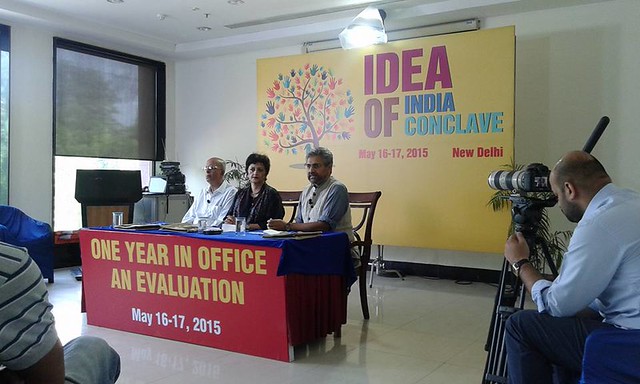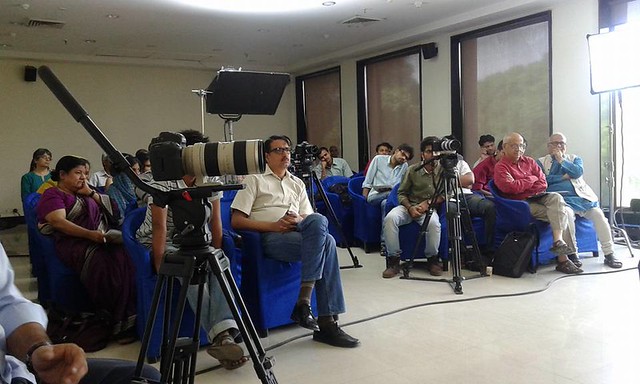By TwoCircles.net Staff Reporter,
New Delhi: A number of civil society groups and activists came together to organise two conclave on the theme Idea of India’ at New Delhi’s Constitution Club on Saturday and Sunday.
The Idea of India Collective is a large inclusive collective of persons, including thinkers, students, activists and concerned citizens, who have come together around the core conviction that central to our idea of India is the affirmation of its diversity.

“The India we are part of belongs equally to all persons who make it its own – no matter what their religious faith (or the lack of it), their gender, caste, class, language, physical abilities and sexual orientation. The bedrock of the Indian republic is the promise that all its citizens can find space in which to practise their beliefs and cultures, and live freely, confident they will be equally protected by the law of the land. This Collective is also convinced about the central idea of the good state as one which defends the oppressed and disadvantaged, and ensures their access to basic rights necessary for a life with dignity,” the organisers said.
On May 16, 2014 the result of general election as declared and Narendra Modi was sworn as at the prime minister 10 days later.
Leading public intellectuals, artistes, human rights and other activists participated in the programme. Eminent speakers included senior journalists like Siddharth Varadarajan, Seema Mustafa, etc; academicians like Zoya Hassan, Prabhat Patnaik, Neera Chandoke, etc.; lawyers like Indira Jaisingh, Vrinda Grover; activists Harsh Mander, Shekhar Singh, etc, artists Yusuf Sayeed, Dhruv Sangri, etc., among several others.
There were separate sessions on economy, gender and caste, agricultural distress, civil discontent, foreign policy, science and reasons, education, history, culture and heritage, law and justice, and media.
In earlier conclaves of the Idea of India Collective organised soon after this election, many of the country’s leading public intellectuals, human rights workers and artistes, expressed grave worries that this new government would be driven by another idea of India, an idea of majoritarian domination, which is alien to the social and political philosophy on which this country was built and consolidated.

They feared that what this other idea of India could lead to is riots, polarization, the pulling back of the state from public expenditure on health, education and nutrition in favour of large subsidies to the private sector, weakening of labour and environmental protections, and the theft of natural resources in the name of development. And to enable all of this, a curbing of freedom so people can be told what to think, read, write, say, paint.
This conclave attempted to assess whether the fears expressed when this government took office were well-founded, and also how well this government has performed both against the standards we have laid out above as representing the Idea of India, and the announcements of the government itself.
Speakers expressed their worries that the signs are not very positive, particularly in the socio-cultural front and the marginalised and poor farmers are facing the brunt of misplaced focus of economic policies.

